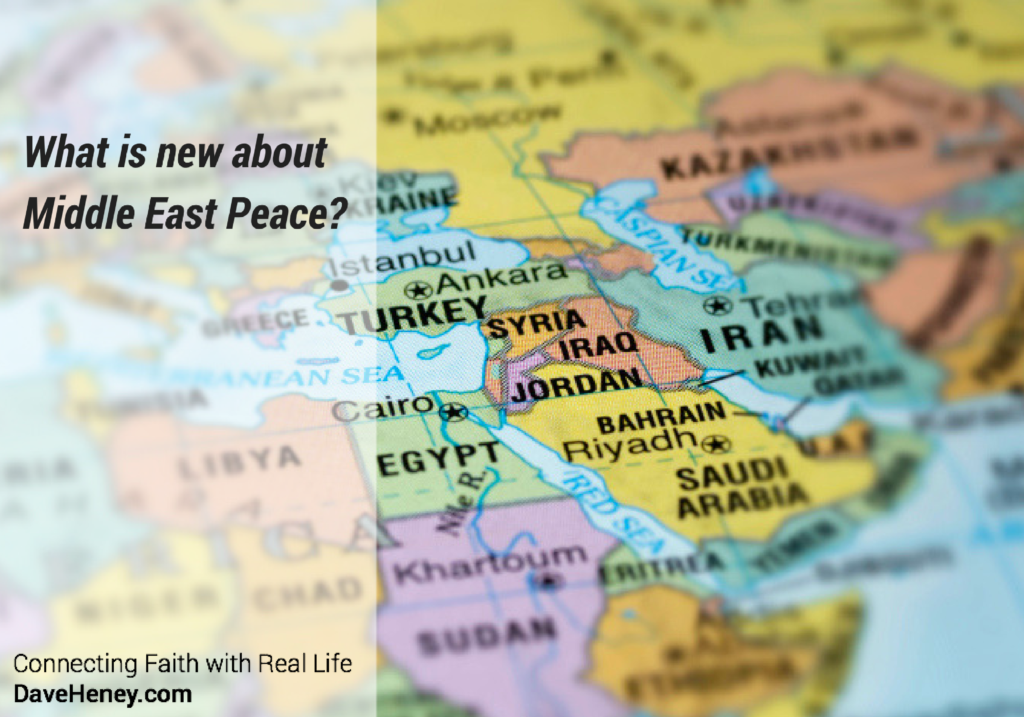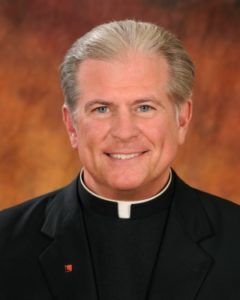
Recent events could mean the biggest advance to Middle East peace in a very long time.
The first is the unprecedented trip the president will make this week to Saudi Arabia, Israel, and the Vatican, which in turn are the centers of Islam, Judaism, and Roman Catholicism. The purpose is to join leaders of these major religious centers in the global effort against violent Radical Islamic Fundamentalism which sponsors so much terrorism around the globe. The president will meet almost all Middle Eastern leaders during his trip, as well as pray at the Western wall in Jerusalem and tour St. Peter’s in the Vatican.
The president also met earlier with president Abdel Sisi of Egypt, Mahmoud Abbas, of Palestine, and president Erdogan, of Turkey, one of the key players in the region. The number of positive statements from Arabian, Israeli, Vatican, and even Palestinian sources so far means that much work has already been done, so the meetings will reveal already decided joint action steps. In the Middle East, the best work is always done quietly, behind the scenes.
Why are Egypt, Saudi Arabia, Jordan, and other countries in the Arab world working with Israel and the US now? Clearly, all see Iran as the leading cause of Middle East destabilization with its program of nuclear missile development, support of the Syrian government, and backing Hezbollah, Hamas, Shia Militias in Iraq and Syria, and other terrorist groups. Of course, Iran constantly threatens the US as well.
Why are they all cooperating now with the United States? Getting these countries together has always been the goal of US foreign policy, however, the recent missile strike against the Iranian backed Syrian government that launched chemical weapons gave a new and strong signal that the US was more serious now about challenging Iran.
Remarkably, the Palestinians have also declared they are willing to re-start peace negotiations with Israel, but only under US sponsorship.
What about the fight against ISIS? Remember that ISIS has a land army only, with no air force, navy, or missiles. They also lost most of the land captured years ago and are on the verge of losing their biggest city, Mosul. Because of these set-backs they have adopted Al-Qaeda tactics of world-wide terror events to appear powerful, but use trucks and cars instead of bombs. Unfortunately, that will continue, especially if they feel peace is breaking out.
Hopes have been raised before about Middle East peace, but we certainly cannot discount the unprecedented coalition now forming among former enemies against violent radical Islamic fundamentalism. I am especially glad that the Vatican is a key member of this coalition for peace. Our prayers for peace continue…
God Bless!
Fr. Dave


Father Dave, thank you for your words of encouragement and your perception of the events. On the centennial of the miracles at Fatima, we can hope that the Holy Mother is praying for peace in a world full of turmoil.
I think Mary is very much involved! “Do whatever He tells you.”
We pray that the Arabian youth will be encouraged to participate and move towards peace.
I agree!
Hi Father Dave:
As long as I have been on this earth, US leaders have been attempting to negotiate peace in the Middle East. Until you have Arab countries willing to acknowledge Israel’s right to exist, it is going to be tough sledding. This is not to say we should not continue in our efforts to achieve peace for “Blessed are the peacemakers, for they shall be called the children of God.” As you point out, perhaps Iran and the violent radical Islamic fundamental elements will force the moderate Arab countries to acknowledge that Israel is not their enemy but a stabilizing force in the Middle East. Continued prayers.
All the best,
Argyle
Yes, I agree completely. I believe the Arabian countries are finally seeing the light about how to move forward for their people.
Thank you, Fr. Dave, for this article on “What is new about Middle East peace. ” Your words help me understand the meaning of hope in our world. I can also share this breaking news with others. Your continued prayers for our world encourages me to pray for peace and to encourage others to do the same. Shalom!
Thank you!
Father Dave, thank you for your insight, rather unfortunately are press will never bring this optimistic news to our attention. Hopefully, Mary’s presence will be felt at the negotiating table. My prayers are with the president for his success.
Blessings
John McCarthy
PS Boy do we need some good news!!!!!!
Yes, finally, at long last, I think we are going to hear more good news.
Fr. Dave,
It was so refreshing to read your article on the prospect of Peace in the Middle East.
We never hear good news like that on the media outlets!
Thank you for sharing the latest developments with us.
May the peace that the Lord has bestowed on us guide the religious leaders to broker
a peaceful resolution and put an end to Radical Islamic Terrorism.
.
Yes, let our prayers continue.
Thank you so much Fr. Dave, we appreciate your input and our prayers for peace there. And also for you and those on your trip. God bless. Ed and barbara
Thank you!
Hi Fr. Dave.
To read your uplifting and enthusiastic endorsement of the current effort by Pres. Trump to meet with the Middle Eastern efforts to begin talking peace we usually would say “Here we go again”. Having an eye for the “reality” that is the Middle East and your love for going there helps each of your readers to feel hopeful once again. What is your reaction to the most prescient interlopers in these efforts given this missive from “The Economist” in Feb.2017?
Egypt’s clerics are resisting the president’s call to renew Islam
Reforming Islam in Egypt
Sisi versus the sheikhs
Print edition | Middle East and Africa
Feb 18th 2017 | CAIRO
FEW Egyptians dare challenge Abdel-Fattah al-Sisi, their authoritarian president. But one institution has stood up to him. “You wear me out,” Mr Sisi reportedly told Ahmed al-Tayeb, the grand imam of Cairo’s al-Azhar University, last month.
It has been over two years since Mr Sisi, an observant Muslim, lamented that some of his co-religionists were becoming “a source of worry, fear, danger, murder and destruction to all the world”. He urged Egyptian clerics to push back against the jihadists of Islamic State (IS). Egypt itself was a victim, he said: angry Islamists have attacked the government and an affiliate of IS battles the army in Sinai. To combat such extremism, “a religious revolution” was needed, said Mr Sisi—and al-Azhar, the Sunni world’s oldest seat of learning, should take the lead.
……………
But the clerics, led by Mr Tayeb, have largely resisted Mr Sisi’s appeal. Though al-Azhar bills itself as moderate, critics say that it has allowed hardliners to remain in senior positions and failed to reform its curriculums, which include centuries-old texts often cited by extremists. It has blocked efforts at social reform and tried to censor its critics. “Nothing has been done since the president called for renewing religious discourse,” said Helmi al-Namnam, the culture minister, last August.
For most of its 1,000-year history, al-Azhar has acted independently. Each year it trains thousands of preachers, while tens of thousands of students, foreign and local, study in its schools. But it has also delved into politics, often frustrating Egypt’s rulers. Gamel Abdel Nasser, Egypt’s president from 1956 to 1970, reined in the clerics by nationalising their endowments. He and his successors pushed al-Azhar to issue fatwas (religious edicts) justifying their policies. This hurt the institution’s credibility, but further enshrined it as the main arbiter of the faith in Egypt.
Mr Sisi has also used al-Azhar. When he ousted the Muslim Brotherhood from government in 2013, Mr Tayeb sat by his side. The new constitution, adopted in 2014, gave al-Azhar more autonomy. But since then Mr Sisi has tried to exert control over religious matters. He has closed mosques and banned preachers who are not registered.
Yes, you are right in outlining the contest between President Sisi and al-Azhar University. The University has not signed on as yet to his moderating voice. However, it is not an accident that our President went to Saudi Arabia first, and not Egypt. It is the Saudis, as the “Custodians of the Holy places of Mecca and Medina” that are the main spokespersons of Islamic faith. We also have to acknowledge the very successful visit of Pope Francis to Egypt recently, who also presented a strong endorsement of President Sisi’s message of moderation. President Trump will join that message of Pope Francis when they meet in a few days at the Vatican. All the right steps are being taken by these world leaders to sideline the extremists at al-Azhar.
Well I guess there is one thing that Trump is doing that’s good.
Fortunately, we have a very accomplished and professional foreign policy and defense department staff in place right now.
Father Dave,
As you point out in your column and as you discussed at your University Series class on the Middle East, progress in the Middle East is done behind the scenes as the culture sees any public negotiating as weakness. I applaud Trump for his visit and his actions, but do you think the West has learned the lesson that secrecy is
key to lasting peace there?
Thanks for your question. All of the agreements signed today, and there are more to come in the days ahead, have been agreed upon over the last several months. While all of the news has been about domestic issues, an amazing amount of progress has been made that the media never knew about. When the domestic news is all about “leaks” it is nice to know that the government can still pursue policies with appropriate confidentiality.
That is certainly a welcome news. About time for these countries to meet and work together including the Vatican no less. This is a big start towards peace. Time to stop the loss of lives. Time for those people in war torn countries especially in the Middle East to experience peace, enjoy life without fear of being attacked by the radicals. Let us all pray that this will happen. With our Lord, nothing is impossible.
I agree!
Thank you Fr Dave for your insightful and much welcomed Real News.
If only we could see your article published and viewed by even a few of the mainstream, perhaps we could make a dent in the perpetuated negativity we see in our current media.
I am glad you liked the article. I do not believe there will ever be a change in our media climate. However, I am glad that the government professionals go forward with peace plans anyway.
Thank you Father Dave for your thoughts on Middle East peace. The University Series you presented on the Middle East certainly brought some clarity on current events.
Thank you!